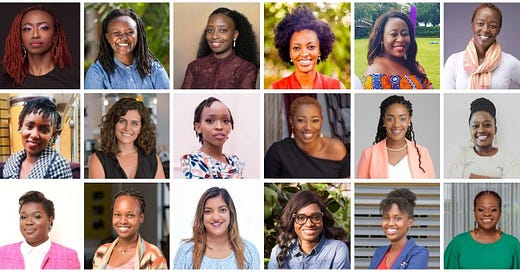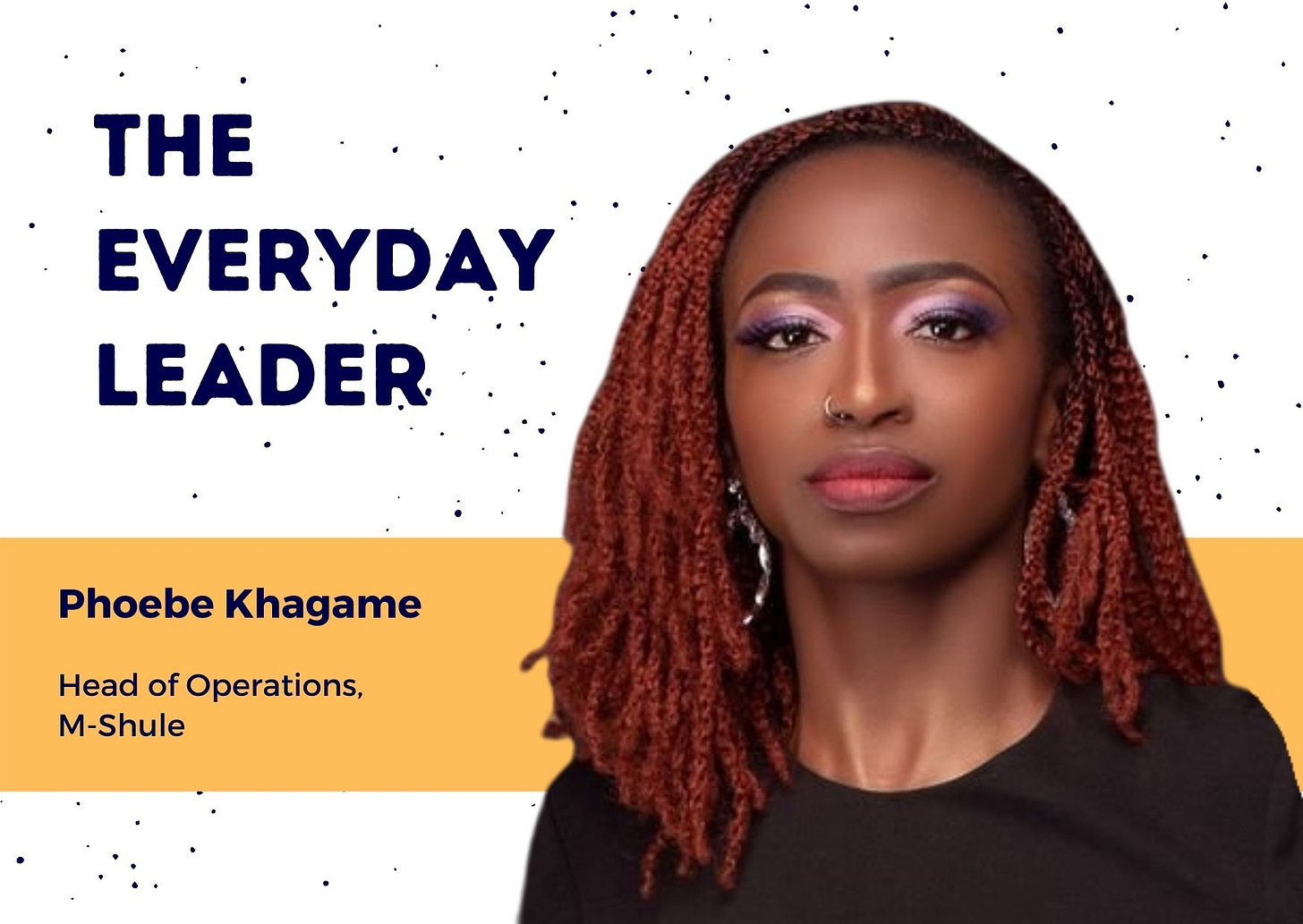
Hi everyone, here’s what we have for you this week:
CoffeeChat marks International Women’s Day by celebrating women’s achievement. We highlight important insights shared over the past year from over a dozen female leaders working across Africa.
How much energy do you spend managing upwards versus downwards? In this week’s episode of The Everyday Leader, Phoebe Khagame from M-Shule in Kenya shares about the value she adds in leadership team conversations.
Executive coaching is growing in Egypt. We hear from Mariam, a certified Executive, Leadership and Team Coach based in Cairo, Egypt.
Read on for more details…
Celebrating International Women’s Day
This year we have the opportunity to amplify the voices of women through our podcast, The Everyday Leader, which interviews leaders at interesting and high-growth companies across Africa. To mark International Women’s Day, we highlight a number of important insights shared over the past year from over a dozen female leaders working across Africa. Click through to view the full summary of their interviews:
Mumbi Annstella from Tala pointed out that at larger organizations, leadership can mean knowing how to leverage internal expertise.
Luizer Makena from SeamlessHR highlighted the importance of making time to pause during transitions.
Persis Ashers from IDinsight showed us how transitions between roles are opportunities for learning.
Catherine Njeri from Cellulant illustrated how to future-proof your career by developing a mix of soft skills and industry expertise.
Wairimu Njoki from the Micro Finance Company told us how startups provide an opportunity to discover what types of work you’ll like.
Rushika Pattni from Ramani explained how to be intentional in selecting the type of leader you want to work for.
Caroline Afedoe from Turaco advised that starting your career in a sales role can be a great way to develop business and people skills.
Phoebe Khagame from M-Shule shared that in both life and at work, you don’t always seek out all the roles you find yourself playing
Cynthia Makunganya from Yellow reminded us to find ways to take on important social initiatives that are embedded within your business model.
Seun Olafusi from Branch shared that good managers provide opportunities for their team members.
Penina Kimani from Longhorn Publishers highlighted how entrepreneurs can use roles at larger companies as learning opportunities during pivots.
Doris Muigei from Yusudi shared her story to show us that sometimes slowing down can help you move forward.
Delice Fatiro from Resonate warned us to be aware of the risk of stagnation after initial spurts of professional growth.
Krista Davidson from Injini shared her strategy for overcoming imposter syndrome.
Mercy Ojwang’-Kinyua from OkHi shared that spending longer tours of duty at companies often allows you to grow and learn more.
Thatcher Mweu from Sendy advised to make it easy for prospective employees to screen themselves out through an authentic interview process.
Asha Mweru from African Management Institute reflected that sometimes it’s only years later that leadership lessons really sink in.
Stepping up into roles where you have been appointed, influencing upwards within a leadership team, and setting clear expectations around performance with your team
Here are a few highlights from the conversation with Phoebe:
In both life and at work, you don’t always seek out all the roles you find yourself playing: At times you will find yourself stepping up to fill the responsibilities of titles that are bestowed upon you. During her primary school years, Phoebe was selected by her teachers for 4 years to serve as the Head Girl of her class. This experience taught her early on the skills and appreciation for getting buy-in from other students. She needed to act as a leader for them to listen and respect her leadership, even when they themselves hadn’t necessarily chosen her as their student representative.
Influencing upwards within a leadership team is just as important as managing downwards: In her role as Head of Operations, Phoebe works closely with her CEO and CTO. She finds herself well positioned to help them stay in tune with both KPI performance and team wellness when making business-critical decisions. The impact of doing this role well is incredibly impactful for the success of the company.
Intentionality and clear expectations are the key foundations for strong managers: Phoebe learned from a previous manager that it is super important to clearly communicate to your team what you expect from them and have an open door to allow staff to seek clarifications on their goals and assignments. In cases where you need to put a team member on a Performance Improvement Plan (PIP), it must be clear to all involved what needs to improve and how. This leads to both motivation and acceptance. Getting this right also impacts other team members not directly involved, because teams don’t thrive when individual underperformance is not addressed effectively.
Mariam is a certified Executive, Leadership and Team Coach based in Cairo, Egypt.
What motivated you to become a coach?
Searching for my passion and purpose has led me to coaching. The desire to use my strengths and personal gifts in order to support others to flourish and step into their full potential was my driver. I have tasted what it feels like to start taking charge of my own life and create a fulfilling personal and professional one; and this is my dream for everyone else.
What was one of your biggest learnings while training to become a coach?
The more and more I get into this work, the more and more I realize the power of our thoughts. All transformations, starts from being aware of oneself and one’s thoughts, then consciously choosing more empowering thoughts in order to create the desired results. When people realize the power that lies in their thoughts and how much is in their control, they are unstoppable.
Why is 1:1 coaching important for leaders within companies?
Leaders in organizations have great responsibility and are role models for so many others, they are constantly making decisions and face continuous challenges. 1:1 coaching helps to clarify the direction, support during the tough times and ignite their full potential to lead their businesses and their teams as well. It is in those sessions that leaders take a step back to create laser-sharp strategies and feel on track.
How has the use of coaching evolved over recent years in Egypt?
Since I have started my coaching journey, I have been privileged to witness the growth of the coaching industry in Egypt. In the most recent years, there has been more awareness of the concept of coaching, more understanding and more openness to seek coaching whether in organizations or personally.
How has coaching shifted during the transition to remote working?
The concept of having virtual coaching is now so much more acceptable. Also, as more people had to adapt to new norms, coaching was more sought after in order to ease this adaptation process and create more resilience and agility to face the stresses and challenges of the situation.









